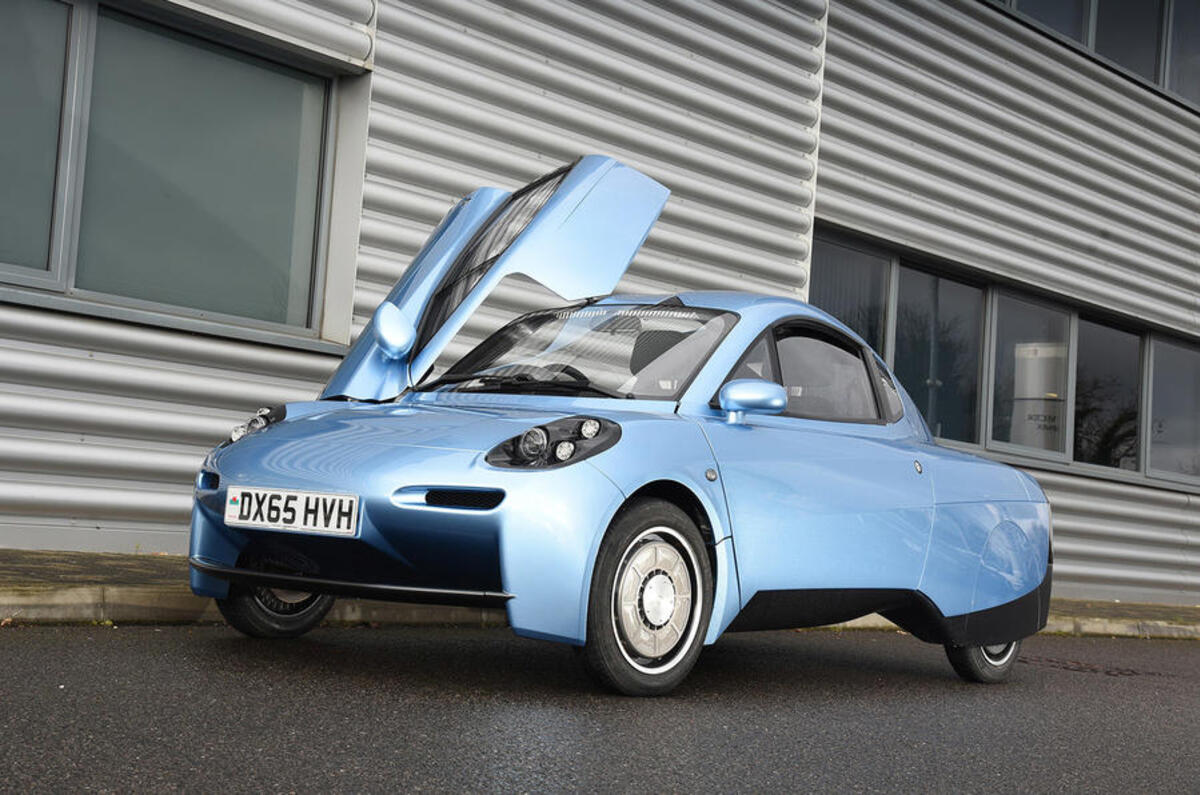Trials of Riversimple's hydrogen-fuelled Rasa two-seater will begin next spring ahead of an anticipated market launch in 2022.
The 20-car trial will be based in Monmouthshire, Wales, where the British start-up company has invested in a hydrogen filling station in Abergavenny.
Users already signed up include five public sector operators, who will run a Rasa each for a number of months, two car-sharing companies and 280 retail customers. Each of the latter group will get to lease the car for only a month, as Riversimple founder Hugo Spowers wants as many people as possible to try the car.
These customers will pay £370 per month and 18 pence per mile. Spowers hopes to keep this pricing when the Rasa reaches volume production.
“It's indicative pricing that we think will come to market. It’s benchmarked against the cost of ownership of a bottom-of-the-range diesel [Volkswagen] Volkswagen Golf,” Spowers said.
Concerning the trial’s intended outcomes, he added: “The trial is intended to refine the customer proposition and demonstrate the economics of filling station; we hope the one we’ve put in is the only one we’ll ever do. We want to work with Shell and so on to demonstrate the effectiveness from their point of view of this model of infrastructure.
“We also want to showcase the project to other local councils and government about how it works at a community level. We want to focus on this kind of expansion. Rather than blanket the UK, we will be targeting various areas.”
The trial will also gather data on usage styles; each car has 20GB of bandwidth for this purpose.
The lightweight Rasa is claimed to be capable of an estimated 250mpg and a 300-mile range from 1.5kg of hydrogen. It uses a fuel cell that combines hydrogen with oxygen to form water and electricity. This electricity powers four motors that drive each of the car’s wheels, with a combined output of about 443lb ft of torque. The whole drivetrain has just 18 moving parts and is capable of accelerating the car from 0-60mph in 9.5sec and on to a top speed of 75mph.
Spowers added that Riversimple hopes to take the Rasa to volume production in 2022, depending on equity and grants. It has a significant support for its manufacturing facility from the Welsh government, and Spowers is confident of winning another grant to facilitate production engineering of the model.
Riversimple will also open-source its hydrogen technology. “We are open sourcing our technology when we come to market and would like to see many people as possible copy us to build volume in our supply chain to drive cost down,” explained Spowers.





Join the debate
Add your comment
More hydrogen gassing
" 250mpg and a 300-mile range from 1.5kg of hydrogen." impossible. Hydrogen is now over £10 a kilo so £15 worth of hydrogen (2.2 gallons of fuels) to do 300 miles (max) works out to approx. 135 mpg. Considerable less than a Tesla Model S or LEAF using Economy 7
xxxx wrote:
Complete shame its not IMPOSSIBLE for you to shut the hell up.
The economic future
The economic future of this company is persuading investors and selling the company to a large car company. I can't foresee it expand by itself. Other serious car companies have already started developing hydrogen family cars, a two seater will never be economically justified. The light weight immediately raises the question: How safe is it?
The economic future
The economic future of this company is persuading investors and selling the company to a large car company. I can't foresee it expand by itself. Other serious car companies have already started developing hydrogen family cars, a two seater will never be economically justified. The lught weight immediately raises the question: How safe is it?